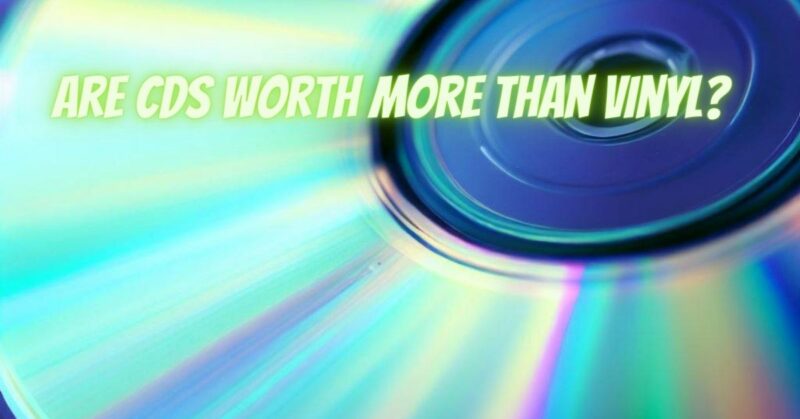The ongoing debate over the value of vinyl records versus CDs continues to stir passion among music enthusiasts, collectors, and audiophiles. While both formats serve as conduits for enjoying music, they differ significantly in terms of their sonic characteristics, tactile appeal, and collectibility. In this article, we will explore the factors that contribute to the perceived value of vinyl records and CDs in today’s music landscape.
The Vinyl Revival
In recent years, vinyl records have experienced a resurgence in popularity, often referred to as the “vinyl revival.” This revival has been driven by several factors:
- Analog Sound: Vinyl records offer a warm and rich analog sound that many audiophiles find appealing. The analog nature of vinyl produces a unique listening experience characterized by subtle imperfections and natural harmonic distortion.
- Tactile Experience: Vinyl records provide a tactile and tangible connection to music. Handling a vinyl record, carefully placing it on a turntable, and gently dropping the needle onto the groove is a ritualistic experience that many music lovers cherish.
- Collectibility: Vinyl records have a long history of collectibility. Rare and limited-edition vinyl releases, particularly from iconic artists, can command significant prices in the collector’s market. The scarcity of certain vinyl pressings adds to their allure.
- Album Artwork: Vinyl records showcase artwork in a larger and more visually captivating format compared to CDs. Album covers and accompanying inserts are often considered works of art themselves, making vinyl an attractive choice for collectors.
The CD Advantages
While vinyl records have their appeal, CDs offer distinct advantages that cannot be overlooked:
- Portability: CDs are compact and easily portable, making them convenient for listening in various settings, from cars to portable CD players.
- Durability: CDs are relatively resistant to wear and damage compared to vinyl records, which can be sensitive to scratches and mishandling.
- Digital Convenience: CDs can be easily ripped to digital formats, allowing for digital playback on modern devices. This flexibility appeals to those who want the convenience of digital music libraries.
- Economical: CDs are often more affordable than vinyl records, making them an accessible choice for music enthusiasts on a budget.
Valuable Factors
The perceived value of vinyl records and CDs depends on several factors:
- Collectibility: Limited editions, rare pressings, and iconic artists can significantly increase the value of both vinyl records and CDs. Collector demand drives prices.
- Condition: The condition of a vinyl record or CD is critical to its value. Mint condition items with pristine packaging and discs typically command higher prices.
- Scarcity: Limited production runs or discontinued releases can create scarcity, driving up the value of both formats.
- Historical Significance: Albums with historical or cultural significance, such as first pressings of seminal albums, often carry higher value.
The value of vinyl records versus CDs is a multifaceted discussion influenced by personal preferences, the allure of analog sound, the tactile experience of vinyl, and the practicality of CDs. Collectibility, condition, scarcity, and historical significance play significant roles in determining the value of individual items in both formats.
Ultimately, the value of music, whether in the form of vinyl records or CDs, transcends monetary considerations. It is the emotional connection, the memories evoked by a particular album, and the joy of music appreciation that truly define the worth of these formats for music enthusiasts and collectors alike.


